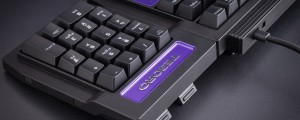Due to a hard lesson on the practical limitations of RAID arrays on my gaming rig, I found myself with an unexpected block of free time. As I worked to shore things up, my thoughts eventually turned toward Batman: Arkham Asylum, and how I might improve my gaming experience by adding a little PhysX to my ATI system. It was too much to buy into a full-fledged NVIDIA GPU, but I’d heard of recent additions to the PhysX-compatible GeForce 9000 series–the 9400 GT and 9500 GT–both of which are available in PCI flavor.
“PCI,” I thought to myself, “that sounds perfect! I could use it alongside my CrossFireX configuration!” I decided to do some research on the idea, and the consensus offered by Google was that the PCI bus does not offer enough bandwidth to make hardware-accelerated PhysX viable.
I was disappointed, but it turned my thoughts towards PCI in general. Why is this antiquated standard still so common in modern PC parts?
What is PCI?
PCI, short for Peripheral Component Interconnect, hit the mainstream in late 1994. It made its major debut in second-generation Pentium-class systems, but was soon adopted into the not-quite-dead-yet 486 market as well (my dad actually has a 486 with PCI slots). In simple terms, we’re talking about a standard that became common fifteen years ago. Relative to the pace of technology, that’s ancient.
On technical specifications, PCI is simple: Consumer-grade PCI slots operate on a 32-bit bus which run at 33.33MHz. This gives the PCI bus a maximum transfer rate of 133 megabytes per second, but that’s shared between every PCI device in the computer.
PCI Express
 PCI Express 1.0 was introduced by Intel in 2004 to address the growing need for bandwidth that PCI was too old and too slow to provide. PCI Express operates by creating “lanes” between the installed device and the controller. Each lane represents a full-duplex data connection, and at the time of launch, each of these lanes carried 250 megabytes per second. This means that a single x1 PCI Express slot offers nearly double the bandwidth of the entire PCI bus, and it isn’t even shared amongst other devices.
PCI Express 1.0 was introduced by Intel in 2004 to address the growing need for bandwidth that PCI was too old and too slow to provide. PCI Express operates by creating “lanes” between the installed device and the controller. Each lane represents a full-duplex data connection, and at the time of launch, each of these lanes carried 250 megabytes per second. This means that a single x1 PCI Express slot offers nearly double the bandwidth of the entire PCI bus, and it isn’t even shared amongst other devices.
PCI Express was also designed to be highly scalable, offering slots configured with one lane (x1, 250MB/s), four lanes (x4, 1000MB/s), eight lanes (x8, 2000MB/s), and 16 lanes (x16, 4000MB/s). On top of that, the spec was updated to v2.0 in 2007 to offer double those figures. Essentially, this means that any computer purchased in 2007 or later has nearly four times PCI’s bandwidth in every single PCI express lane.
Assuming you have a relatively high-quality enthusiast motherboard that offers a pair of x1 and x16 slots, that means the peak bandwidth of your PCI Express bus is 17,000 megabytes per second. That is nearly 128 times the entire bandwidth of the PCI bus. That begs the question: Why would you even want to use PCI in a modern computer? It’s old, it’s slow, it’s ugly, and PCI Express is far and away the superior option.
I took a stroll through Newegg, and I could not find a single consumer motherboard that does not have PCI slots—not even the high performance boards are pure PCI Express. Frankly, I find it very dismaying that even $300 motherboard using the latest available chipsets are still anchored to a technology that’s more than 15 years old.
Why is PCI still here?
I’ve taken to considering why motherboard vendors have a continued interest in providing antiquated PCI slots, and I’ve reached this conclusion: Modern motherboards still have PCI slots because manufacturers simply have not demonstrated any effort to dump the old technology.
Industry standards are implemented on need and economy. Firewire met a need, but Apple held onto the standard too tightly, and the standard proved too costly to broadly implement. RDRAM had an incredibly high proposed bandwidth for its time, but it flopped because the manufacturing process made it too expensive. PCI express, on the other hand, is cheap and abundant. Therefore, we can only conclude that the adoption of PCI Express is being held back by add-in board vendors which have not been forced to seriously consider switching their PCI products over to PCI Express. That will not happen until motherboard manufacturers, in turn, start dumping PCI slots on their highest-end boards to set the tone.
I’d really like to see PCI Express take finally take hold of the mainstream but, to me, it looks like the final nudge that will fully seat PCI Express into its rightful throne has to come from the removal of that aging old bastard, PCI.














 Articles RSS
Articles RSS